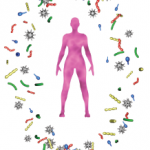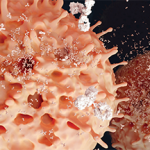New research reinforces the hypothesis that the gut microbiome triggers mucosal and systemic immune responses in patients with rheumatoid arthritis. The research, published in Arthritis & Rheumatology May 2017, found that subgroups of patients with RA have differential immunoglobulin G (IgG) or IgA immune reactivity with Prevotella copri, an intestinal microbe that appears to be…









